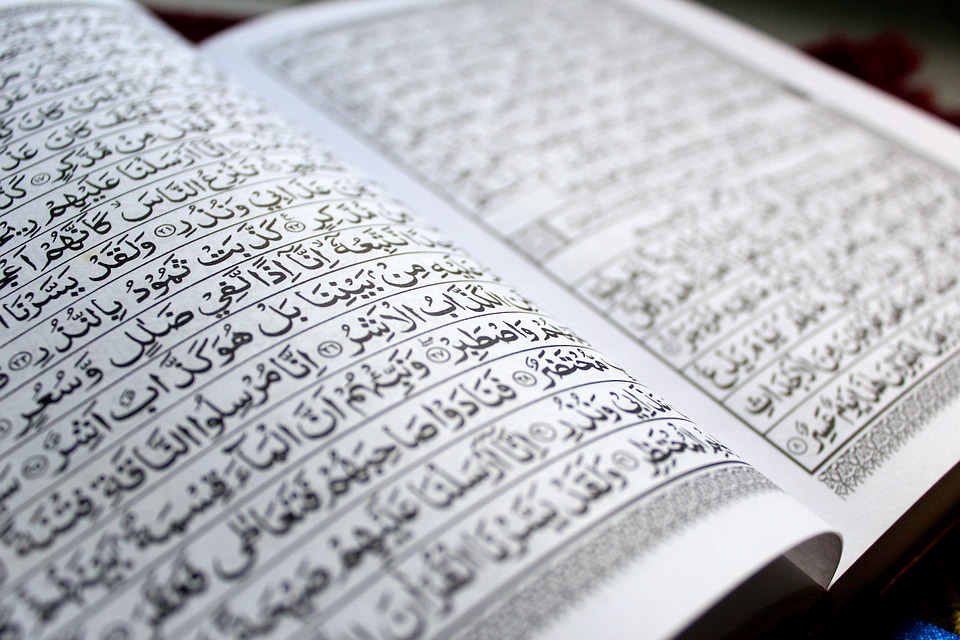Every verse of the Quran is a miracle and a proof of Islam. Sūrah al-ʿAṣr is one of those clearest proofs of the inimitable nature of the Quran. In just three short powerful verses, Allah summarizes the message of Islam and the path of salvation. The challenge to produce one Sūrah like it went unmet by the pagans of Makkah. This is a clear evidence that the Quran is inimitable.
Sūrah al-ʿAṣr is a Makkan Sūrah and has only three short verses. Its theme is the path of salvation. Sūrah al-ʿAṣr begins with an oath, followed by a warning, followed by an explanation of how to save oneself from destruction. Its core message is summarized in the five points listed in verse three.
By Time
There are various opinions regarding the meaning of al-ʿAṣr in this oath. Scholars agree that Allah is taking an oath on al-ʿAṣr to draw attention to what He says next. But they differ over the meaning of al-ʿAṣr in this verse. The word al-ʿAṣr could refer to Ṣalah al-ʿAṣr and its importance in Islam. It could also refer to time as a whole, or time as a concept. A fourth opinion is that it refers to Islam because Islam is the final religion sent before the end of time. Allah knows best.
Perhaps the concept of time is most suitable here. Allah states in the next verse that the disbelievers are at a loss. Linking this to the oath on time, we could conclude that they are running out of time to repent and convert to Islam. If they do not do so soon, then they will find themselves in complete loss in the Afterlife.
The concept of time is a unique gift from Allah that we take for granted. Allah created the sun and the moon. These huge spheres move in systems set by Allah to give us a means to calculate time. Imagine if neither the sun nor the moon existed. How then would we keep track of day and night, or the passage of months and years? Simply look at how time passing differently outside of earth and on other planets, this will drive home the importance of time as a gift from Allah.
Time is part of the Rizq (sustenance) that Allah has given us on this earth. However, unlike other types of Rizq, we do not know how much we have and have no way to recover lost time. It is crucial that we spend our time wisely, as each day wasted can never be recovered. The believer is aware of this fact. Based on this knowledge, the true believers never waste their time and are always conscious about how they spend their lives.
The Path of Truth
After taking an oath on time and warning that the disbelievers are headed for destruction, Allah summarizes the path of salvation. If people end up in a loss in the Afterlife, that is their own choice. Allah has warned us and clearly shown us the straight path. The path of belief, good deeds, community, truth and patience is listed clearly in this Sūrah as the way to Paradise. This is why some early scholars regarded this Sūrah as sufficient for the guidance of mankind.
The first two points mentioned are repeated multiple times throughout the Quran; believe and do righteous deeds. These two forms the core components of salvation. Salvation in the Afterlife is exclusive for those who believed in the message of truth when it came to them. There are exceptions to this rule for those who did not receive the message and a few other categories. But for the bulk of humanity, believing in the message of Islam is the single most important step to earn one’s salvation and enter into Paradise.
Belief on its own is not enough though, it must be followed by righteous actions. Righteous actions are the proof of belief. They show that a person truly believes in Islam and takes it seriously. However, righteous deeds is secondary to belief. This is because a person who believes but does not do righteous deeds can still enter Paradise. But a person who rejects the truth and does good deeds will find his deeds without value on the Last Day.
After these two qualities, Allah mentioned three more; working together, truth and patience. The term ‘working together’ is mentioned in this verse, indicating that both preaching the truth and being patient with the tests of life are communal efforts. A believer is not expected to go through life on his own. We must surround ourselves with other believers and work together in propagating the truth and being patient when the enemies of Islam try to harm us.
Truth in this verse refers to every act that helps to spread Islam. This includes seeking knowledge to know the truth, calling to the truth by inviting people to Islam, and even defending the truth through Jihād and debate. All of these are communal efforts. Every Muslim community needs people of knowledge, preachers and defenders to keep the truth alive and flourishing.
The final point mentioned in this verse is Ṣabr. Ṣabr is a deep concept in Islam and one of the most important acts of worship. It separates the true believers from the weak, and is the key to success in both worlds. Ṣabr means to be patient with the trials of life, persistent in preaching the truth, constant in doing good deeds, and to restrain oneself from committing sins. The word Ṣabr encompasses all of these actions. It is the fundamental characteristic of the true believer. The true believer is committed to Islam and does everything possible to reach Paradise. This includes living life in a way that includes every meaning of Ṣabr.
It is narrated that many of the early Muslims would recite this Sūrah whenever they parted ways. This, over time, developed into the practice of ending gatherings with a recitation of this Sūrah. There is no harm in this practice, as it has its evidence, even if people differ over it.
Abū Madīnah al-Dārimī said, “When two men among the companions of the Prophet (peace and blessings of Allah be upon him) met, they did not part until one of them recited to the other: 1. “By al-ʿAṣr (the time). 2. Verily, man is in loss” [i.e. Sūrah al-ʿAṣr], then one would say Salām to (greet) the other.”
Abū Dawūd 417






